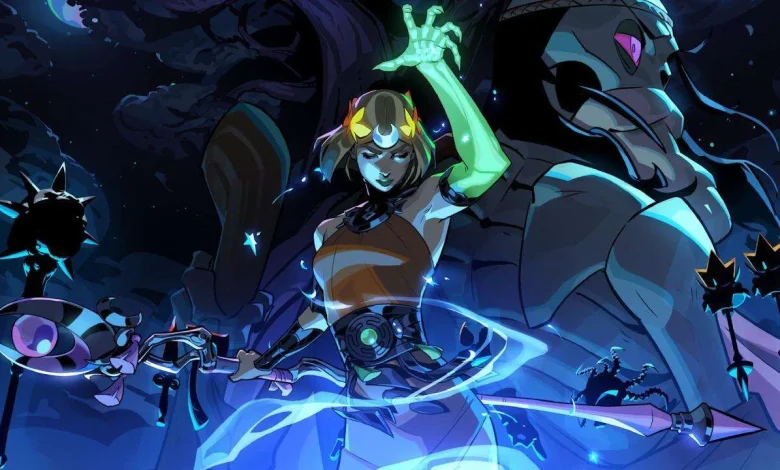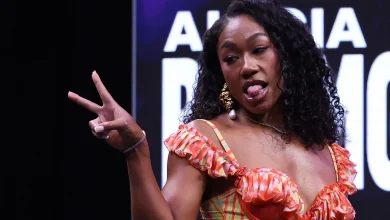How Hades 2 Fails Its Protagonist

Minor spoilers for Hades and Hades II to follow–read at your own discretion.
Since its inception, Supergiant Games has built up a reputation around high-quality story experiences with deep gameplay systems to match. Yet while all the San Francisco-based studio’s games are worthy of praise, it was the first Hades game that raised the bar when it came to roguelike games and their storytelling. It only makes sense, then, that it also became the first Supergiant title to earn a sequel.
Want us to remember this setting for all your devices?
Sign up or Sign in now!
Please use a html5 video capable browser to watch videos.
This video has an invalid file format.
Sorry, but you can’t access this content!
Please enter your date of birth to view this video
JanuaryFebruaryMarchAprilMayJuneJulyAugustSeptemberOctoberNovemberDecember12345678910111213141516171819202122232425262728293031Year202520242023202220212020201920182017201620152014201320122011201020092008200720062005200420032002200120001999199819971996199519941993199219911990198919881987198619851984198319821981198019791978197719761975197419731972197119701969196819671966196519641963196219611960195919581957195619551954195319521951195019491948194719461945194419431942194119401939193819371936193519341933193219311930192919281927192619251924192319221921192019191918191719161915191419131912191119101909190819071906190519041903190219011900
By clicking ‘enter’, you agree to GameSpot’s
Terms of Use and
Privacy Policy
enter
Now Playing: Hades 2 Review
Hades II carries over a lot of the features that made its predecessor such a beloved title, with one exception: its protagonist. This shift presented Supergiant with an exciting opportunity to explore new themes, making it disappointing that the end result instead plays into matronly stereotypes. While the first game had a protagonist who started out a cocky, sarcastic jackass before undergoing a deep and meaningful character arc, Hades II forgoes this in favor of making its female protagonist overtly stoic and duty-bound, playing into the misogynistic societal expectations for female-identifying people.
Set in the Greek mythology version of the underworld, Hades told the story of Zagreus, son of the titular god of the Underworld. Unhappy with his life of luxury and comfort in the Underworld, Zagreus decides to leave and join the rest of the gods in Olympus. Along his way he fights numerous enemies in the underworld and the fields of Elysium in a Dante’s Inferno-esque journey.
Across Hades’ dozens of hours, players got to learn about Zagreus and witness his transformation from melancholic spoiled brat to suave, care-free warrior–the very embodiment of cool. He received a proper and fulfilling arc, one that helped cement the game as an instant classic and proved Supergiant could take a subject as vast as Greek Mythology and deliver a personal story about growth. Through their attempts to escape as Zagreus, players saw his character change, and demeanor soften. What could have been a modern-day interpretation of gods and mythology instead became a personal fable of growth, gratitude , and maturity. Hades’ tale strikes a chord and has universal appeal, no matter the audience.
Enter Hades II, the unexpected sequel. How can a studio even follow up on a game that felt so complete? Sure, Greek mythology allows for countless tales and settings, but Hades felt so personal and laser-focused that one can’t help but wonder where to even go from there.
Hades II follows new protagonist Melinoë, the daughter of Hades and younger sister of Zagreus. After the home of Hades was sieged by Chronos, the God of Time, Mel was raised in the field of Elysium by the witch Hecate. Because Chronos launched his attack when she was a baby, Mel has never met her family and instead only knows them through information that she learned from others. Mel, desiring the family she has never known, decides to train with Hecate to kill Chronos and help her family reclaim their home, all while dealing with a war and invasion of Olympus in the process.
And herein lies the problem with the fable of Molinoë. Hades II starts in the middle of its story–Mel is already well into her training and the house of Hades has already fallen. We don’t know much about her as a character and even though we’re drip-fed information about her backstory throughout the game in the form of flashbacks, we never quite get to know her beyond her wanting to save her family.
Melinoe vows to slay Chronos.
The first Hades game gave us a fully fleshed-out character and allowed them to grow throughout the narrative. Zagreus was allowed to be flawed, to take time to learn his own lessons, and to go through a rich, fulfilling character arc. Mel in Hades II, on the other hand, has her story and value tied to her family. She’s portrayed as having very few flaws aside from failing over and over again to save a family that she doesn’t know. Even when she gets wrapped up in a war for Olympus, she’s always solving other characters’ problems. Throughout the game, we learn so little about her. Mel even loses agency in her own narrative when Zagreus gets involved in the third act, and it’s a staggering disappointment.
The problem with Mel’s quest being so intrinsically tied to her family is that it’s evocative of misogynistic ideologies–ideologies that proclaim a woman’s value is tied inherently to her family and that it should be the focus of her life and ambitions. Zagreus was allowed to be a cocky, smartass problem child who showed his flaws by going on a self-centered quest, so why isn’t Mel allowed something similar? Why isn’t she allowed to show flaws to a similar degree, or have a reckless attitude about certain situations?
I’m not asking for her to be a beat-for-beat repeat of Zagreus, but there was so much potential to explore certain themes with a female protagonist that Hades II fails to deliver on. At the start of Hades II, Mel is shown to be mature and established, as if she went through an entire character arc off-screen that we’re only drip-fed information about. Hades II having a protagonist like this only reinforces societal expectations that women need to mature faster, keep order, and focus on tasks at hand at the expense of self-exploration. Hades II could’ve done some interesting exploration of feminist themes using this set-up but instead forgoes it in favor of a stoic protagonist to offset their cheeky protagonist of the first game.
In many ways, Hades II is an improvement on the first game–from the combat and upgrade systems, to the moment-to-moment gameplay. It’s just such a shame that Hades II fails its protagonist in such deep ways that it blemishes the entire experience. While Hades showed audiences how deep storytelling can be in a roguelike experience, Hades II fails to reach that same hallmark by giving us a protagonist that has little agency of her own and is often a fixer of other characters’ problems.





